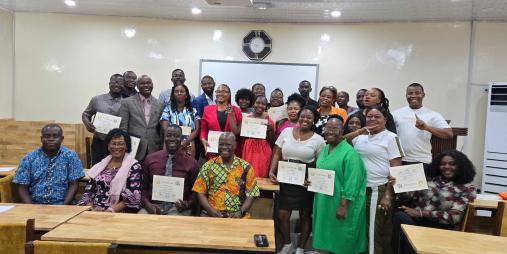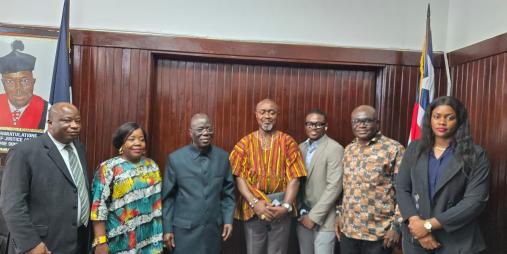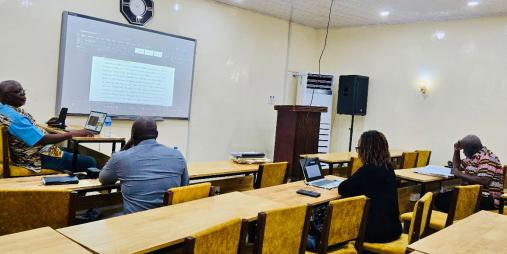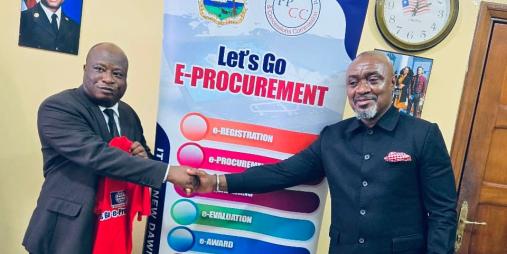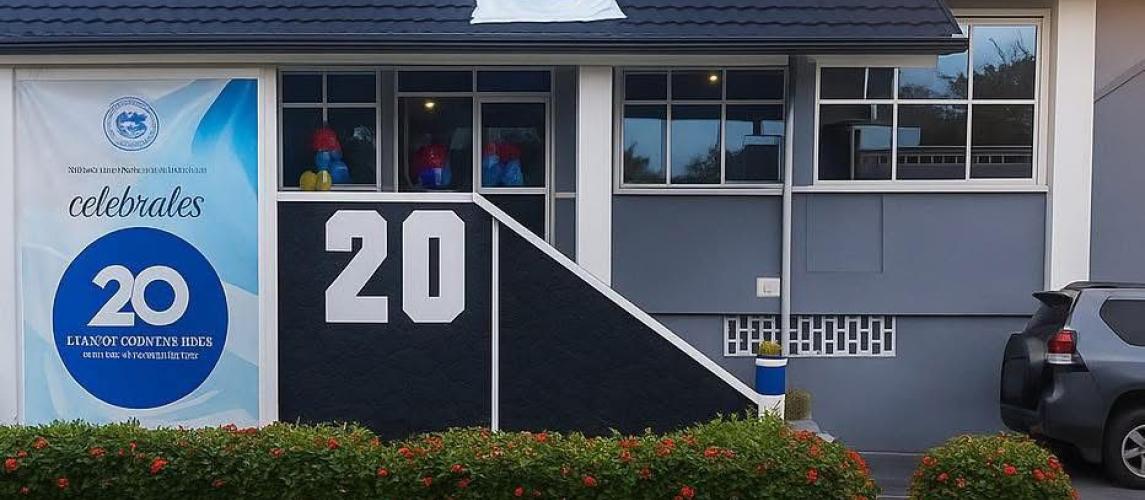
An Overview of the Public Procurement and Concessions Commission (PPCC) Covering the Period September 2005 to September 2025
INTRODUCTION
Public procurement remains one of the most critical areas of governance, touching every sector of the national economy and directly affecting the lives of citizens. In Liberia, the Public Procurement and Concessions Commission (PPCC) has served as the statutory guardian of this process for the past 20(twenty) years.
From its establishment in 2005 to its current digital transformation, the Commission has pursued a clear mandate: to ensure transparency, fairness, competition, and value-for-money in the use of public resources. Its journey reflects both the challenges and progress of Liberia’s governance reforms, as well as the nation’s determination to build systems that prevent abuse, foster accountability, and inspire public trust.
ESTABLISHMENT OF PPCC
The PPCC was established by the Public Procurement and Concessions Act (PPCA) of 2005, passed by the National Legislature in the immediate post-conflict period. Prior to this Act, public procurement was largely centralized, and overseen by General Services Agency(GSA). The adoption of the PPCA represented a major shift toward reform-oriented governance, bringing Liberia in line with international best practices and donor-supported standards of procurement management.
The Act vested the PPCC with broad powers: to regulate and monitor all forms of public procurement and concessions; to develop and enforce regulations; to build capacity across ministries, agencies, and public corporations; and to provide an impartial complaints, appeals, and review mechanism.
Section 5 of the PPCA defines the functions of the Commission, while Section 6 outlines its statutory powers, including the authority to sanction non-compliant entities. The Commission’s Secretariat was established to serve as the operational arm, while a Board of Commissioners provides policy guidance.
EARLY PROGRESS
In its formative years (2006–2010), the PPCC focused on institutional setup and capacity-building. It developed standard bidding documents, procurement manuals, and regulations to guide procuring entities. Annual reports began to be published, offering transparency into government contracting processes.
Importantly, the Complaints, Appeals and Review Panel was set up, allowing businesses and citizens to challenge procurement decisions, an innovation that signaled Liberia’s commitment to fairness and due process.
During the period, the Commission shifted toward strengthening compliance and transparency mechanisms. It launched procurement monitoring and compliance, intensified training for procurement staff across government, and began publishing information on contract awards.
These steps were vital in reducing irregularities and improving competition in the bidding process. With support from development partners, the PPCC also engaged in sector-specific reforms, ensuring that critical sectors like infrastructure, health, and education adhered to standardized procurement procedures.
In September 2010, the PPC Act of 2005 was amended to address key implementation challenges. The Schedule of Threshold was removed and placed into regulations, while setting provisions of the Act were reviewed, restated and amended to create an enabling legal environment for transparency, accountability, fairness, integrity and value for money in public procurement.
The new amendments, (PPC Act of 2010) were introduced following legislative enactment.
Kudos to our international development partners: World Bank, United Nations Development Program, African Development Bank, European Union, USAID, and Swedish Government, for their exceptional support. We owe them a great deal of gratitude for the funding interventions during the early years of the PPCC establishment, and even now.
CONSOLIDATION AND REFORM INITIATIVES
As procurement reform matured, the Commission moved to address deeper governance concerns. Amendments to the PPCA were introduced to close loopholes and strengthen accountability mechanisms. Gender-responsive procurement policies and inclusivity initiatives were piloted, ensuring that women-owned businesses and marginalized groups have greater access to public contracts.
The PPCC also took an active role in Liberia’s Open Government Partnership (OGP) commitments, reflecting a global trend toward open contracting. By aligning its practices with international standards, the Commission enhanced Liberia’s reputation for reform and positioned the procurement system as a driver of integrity and good governance.
MOVING IN THE DIGITAL AGE
Perhaps the most significant recent milestone came with the launch of the Electronic Government Procurement (e-GP) System in February 2025. This digital platform represents a historic leap forward, modernizing procurement by moving it from paper-based processes to a digital platform. The e-GP ensures greater transparency, reduces delays, minimizes human interference, and creates equal access for businesses nationwide.
The rollout began with a pilot phase, targeting six high-value procuring entities, with plans to expand gradually across all government ministries and agencies. The system is designed to not only streamline bidding but also to serve as a central repository of procurement data, facilitating oversight by citizens, civil society, and development partners. Early awareness campaigns and training initiatives are preparing stakeholders to embrace this new era of digital procurement.
Today, we are pleased to report that Liberia’s e-GP System is fully functional, and has so far registered 543 vendors and recorded 132 procurement transactions.
To support this ambitious procurement digitization effort, the PPC Act of 2010 became the subject of discussion.
The support of international development partners and different stakeholder groups was sought, and a comprehensive review of the 2010 PPC Act was commissioned. There is now a draft PPC Act of 2025 awaiting legislative enactment. The draft legislation incorporates Public Private Partnership (PPP), Concessions, Gender Inclusive Procurement, and Electronic Government Procurement(e-GP) System--the new innovative public procurement enabler.
LOOKING IN THE FUTURE
Looking ahead, the PPCC envisions a procurement system that is not only transparent and competitive but also inclusive, resilient, and fully digitalized. Key priorities for the future include:
- Full National Rollout of e-GP – Expanding the platform to cover all procuring entities, ensuring every public contract is processed digitally.
- Data-Driven Oversight – Leveraging e-GP data analytics to detect patterns of waste, collusion, or inefficiency, and to strengthen evidence-based policy-making.
- Enhanced Capacity Building – Continuing to professionalize procurement practitioners through certification programs and specialized training, for example the chartered certificate in procurement, CIPS (Chartered Institute of Purchasing & Supply).
- Inclusivity and Private Sector Engagement – Expanding gender-responsive procurement and encouraging small and medium-sized enterprises (SMEs) to participate in government contracts.
- International Best Practice Alignment – Keeping Liberia’s procurement system aligned with global open contracting and anti-corruption standards.
SUMMARY OF ACHIEVEMENTS
Digital procurement (e-GP): Active rollout and onboarding of procuring entities; system intended to standardize bidding, reduce paperwork, shorten procurement cycles and reduce opportunities for impervious practices. Early 2025 marks the public launch and pilot rollout.
Transparency & disclosure: Continued publication of annual reports, contract award information and efforts to make procurement data publicly available (website repositories, reports). This supports external oversight and citizen monitoring.
Compliance, complaints & appeals: The PPCA’s statutory Complaints, Appeals & Review Panel remains a central accountability mechanism; the Commission continues monitoring procuring entities’ compliance with procurement rules.
Policy development & inclusivity: Work on gender-responsive procurement, county-level stakeholder engagement, and training initiatives indicate a focus on inclusive procurement and building capacity across ministries, agencies and counties.
International engagement & governance: The PPCC participates in international transparency and anti-corruption platforms (e.g., Open Government Partnership processes) and collaborates with development partners on reform, training and systems support.
CONCLUSION
The story of the PPCC is the story of Liberia’s commitment to transparency and good governance in the use of public resources. From its creation in 2005 as a legal and institutional response to weak procurement practices, through two decades of growth, innovation, and reform, the Commission has steadily earned its place as a key pillar of governance.
The launch of the e-GP system marks the dawn of a new chapter—one where technology, inclusivity, and accountability converge to deliver efficiency and fairness in public contracting.
As Liberia moves into the next succeeding years, the PPCC’s challenge and promise will be to sustain these gains, expand digital reforms, and ensure that every dollar spent on behalf of the people delivers maximum value.
In this mission, the Commission stands not only as a regulatory body but as a partner in nation-building, integrity, and prosperity.
